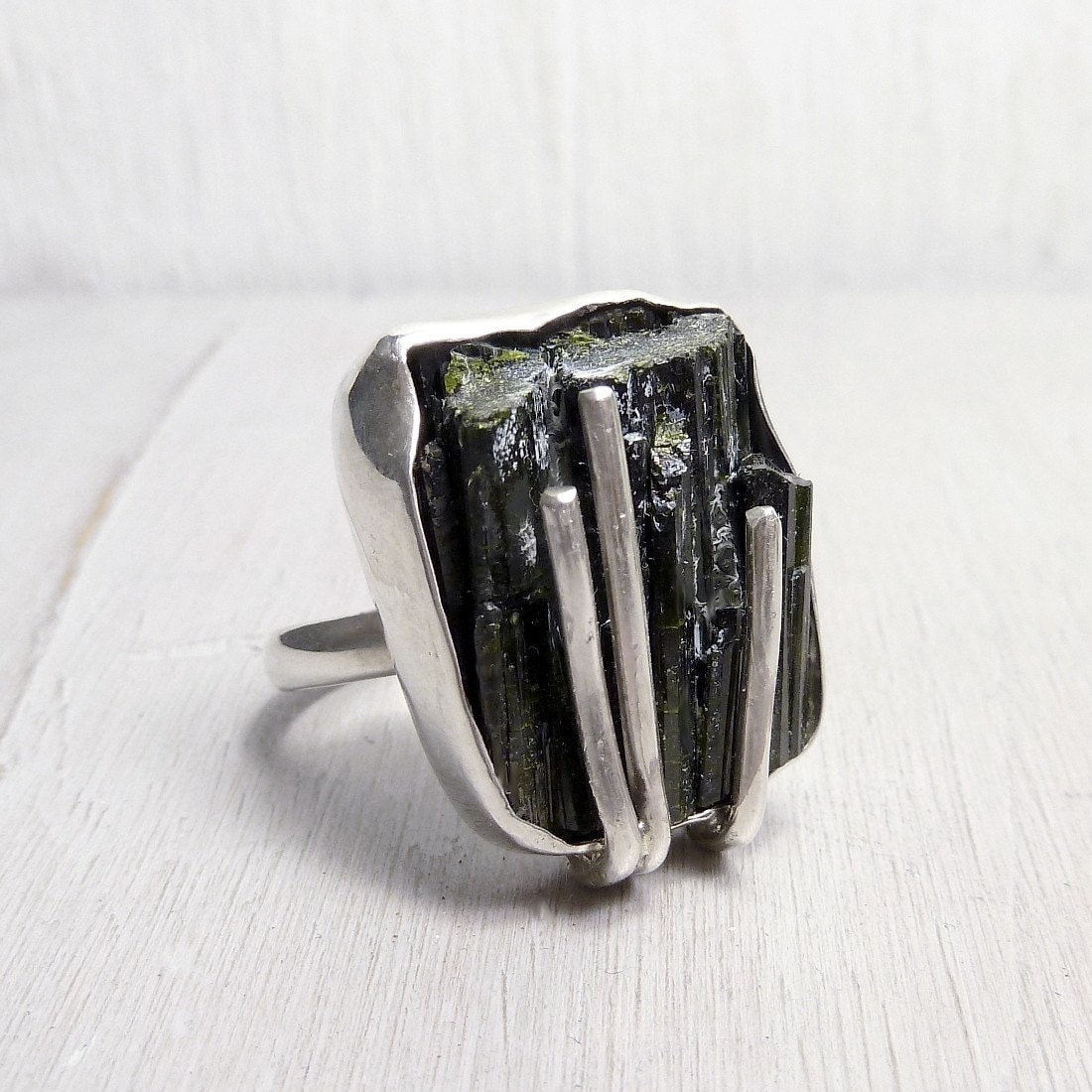Aegirine
Aegirine was first described in 1835 for an occurrence in Rundemyr, Øvre Eiker, Buskerud, Norway. Aegirine was named after Ægir, the Teutonic god of the sea. A synonym for the mineral is acmite (from Greek ???? “point, edge”) in reference to the typical pointed crystals.
It is black, brown, or green on thin, brittle, translucent edges, a glassy luster with uneven cleavage. It visually recognizable only when crystallized. Usually in prismatic, embedded crystals, several inches (10 cm) long, terminated by steep points, as well as in fibrous masses.
Aegirine, which is listed in some guides as acmite, forms impressive crystals that have become classics among collectors. Aegirine is difficult to distinguish from its close cousin augite. Under normal circumstances, the steep pyramids of aegirine are the only point of differentiation.
On mystical property, Aegirine is a mineral, which can assist one in following personal convictions and morality and to do that which is required; it actually provides the strength for one to be true to oneself. It further dispenses with the effects of group pressure, bring acceptance of the self without conformance. It has been used to remove emotional blockages, to allow one to reflect personal attitudes, opinions, and conceptions, and to accept the state of sufficiency. It further strengthens personal integrity and conviction.
In matter of healing property, Aegirine has been used in the treatment of deficiencies of the immune system, to protect one from negative energy and psychic attack, and to increase the amount of energy applied by other minerals when used in ANY healing situation.
